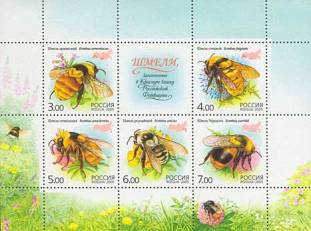The European Food Safety Authority was requested to clarify whether the new publication on the effects of neonicotinoid seed treatments on bumble bee colonies under field conditions (March, 2013; Thompson et al.) has an impact on the EFSA Conclusions on the three neonicotinoids clothianidin, thiamethoxam and imidacloprid (EFSA Journal 2013;11(1):3066; EFSA Journal 2013;11(1):3067; EFSA Journal 2013;11(1):3068). The Conclusions on neonicotinoids, published on 16 January 2013, did not permit to perform a risk assessment for bumble bees and identified the need for further information to address the risk to pollinators other than honey bees. The conclusions of this scientific statement were reached on the basis of the evaluation of the study report by Thompson et al. (2013), and additional raw data made available by the study authors to EFSA. The study investigated the exposure of bumble bee colonies placed in the vicinity of crops treated with neonicotinoids and its major effects on bumble bee colonies. The current assessment concluded that, due to the weaknesses of the study design and methodology, the study did not allow to draw any conclusion on the effects of neonicotinoids on exposed bumble bee colonies, and confirmed that the outcome of the conclusions drawn for the three neonicotinoid insecticides remains unchanged.
Source: EFSA Journal 2013;11(6):3242 (attached)

- Login om te reageren

UK neonicotinoid field trials slammed
UK field trials into the effects of neonicotinoids on bee health are flawed, according to European Food Safety Agency (Efsa). Efsa said it had identified ‘several weaknesses’ in the study which suggested neonicotinoid pesticides do not have a major effect on bee colonies under field conditions. The agency criticised the trials for only looking at one crop – oilseed rape – and said the test sites only reflected a small sample of UK agricultural conditions. Efsa said two important routes of exposure – dust and guttation – were also not addressed by the study. SNP member of the European Parliament’s Agriculture Committee Alyn Smith, who supported a partial ban on the three pesticides, criticised Westminster which he said chose to ‘line up with the chemical companies’. He said: “The UK field trials were held up by the UK Government as a genuine attempt to lead evidence-based policy but have been comprehensively exposed by Efsa as more an attempt to make the science fit political narrative. “Serious questions need to be asked about the production of this UK report, which was held up as if written on tablets of stone, but Efsa has so comprehensively rubbished it it seems more suited to the bin than any serious scientific discussion.”
Source: Farmers Guardian, 9 June 2013
http://www.farmersguardian.com/home/arable/uk-neonicotinoid-field-trial…